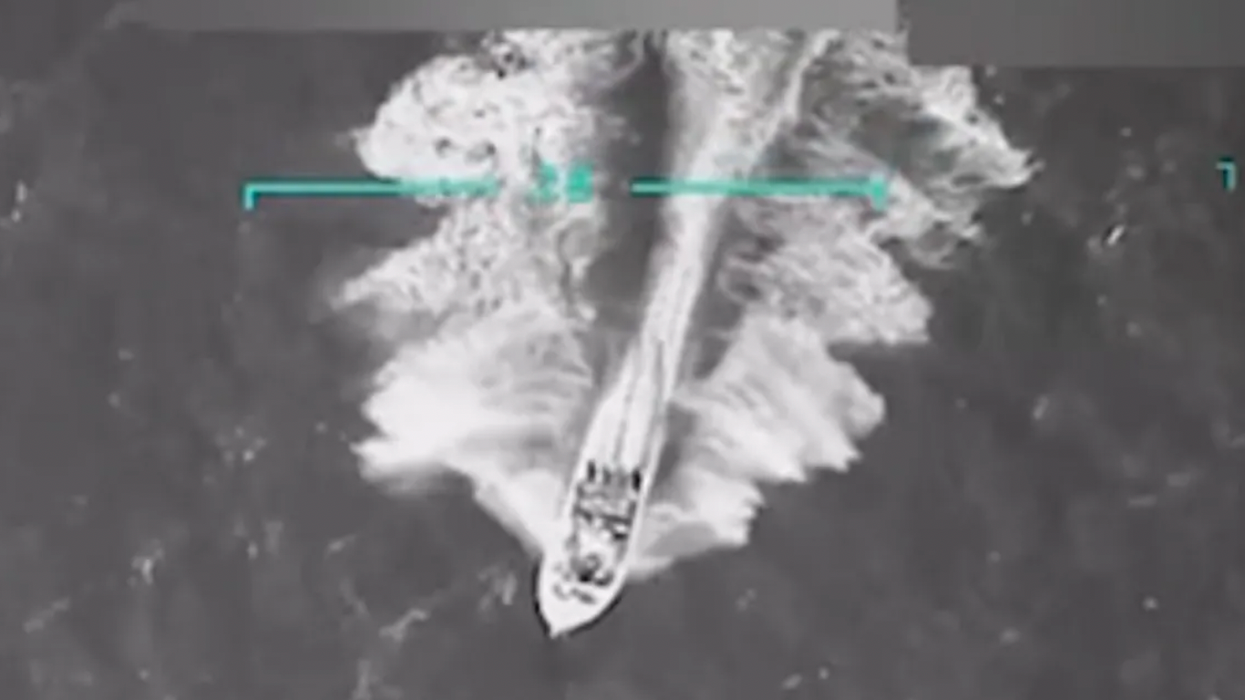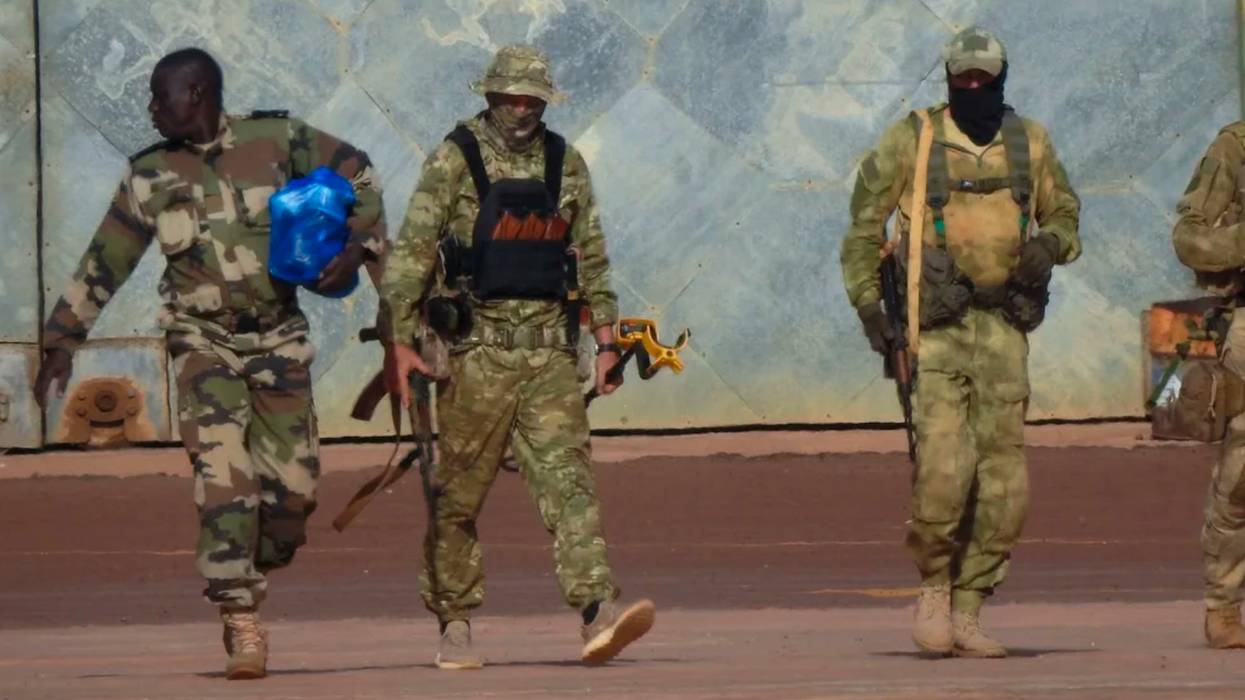Another 'Extrajudicial Execution' as US Bombs Second Alleged Venezuelan Drug Boat
"There is no legal justification for this military strike," said one Amnesty International campaigner. "The US must be held accountable."
President Donald Trump said Monday that the US carried out a fresh strike on what he said was a boat used by Venezuelan drug gangs, killing three people in what one human rights campaigner called another "extrajudicial execution."
"This morning, on my Orders, US Military Forces conducted a SECOND Kinetic Strike against positively identified, extraordinarily violent drug trafficking cartels and narcoterrorists in the [US Southern Command] area of responsibility," Trump said on his Truth Social network. "The Strike occurred while these confirmed narcoterrorists from Venezuela were in International Waters transporting illegal narcotics (A DEADLY WEAPON POISONING AMERICANS!) headed to the US."
"These extremely violent drug trafficking cartels POSE A THREAT to US National Security, Foreign Policy, and vital US Interests," the Republican president continued. "The Strike resulted in three male terrorists killed in action. No US Forces were harmed in this Strike."
"BE WARNED—IF YOU ARE TRANSPORTING DRUGS THAT CAN KILL AMERICANS, WE ARE HUNTING YOU!" Trump added. "The illicit activities by these cartels have wrought DEVASTATING CONSEQUENCES ON AMERICAN COMMUNITIES FOR DECADES, killing millions of American Citizens. NO LONGER. Thank you for your attention to this matter!!!"
US President Trump just announced that a second drug smuggling boat from Venezuela was hit by a US airstrike in the Caribbean, killing 3 people on board the boat.#Venezuela pic.twitter.com/dO34gYr9GZ
— CNW (@ConflictsW) September 15, 2025
Responding to arguments by legal experts and Venezuelan officials that the September 2 strike was illegal, Trump said Sunday that "what's illegal are the drugs that were on the boat... and the fact that 300 million people died last year from drugs."
Only 62 million people died in the entire world of all causes last year, making Trump's claim impossibly false.
Monday's attack followed the September 2 bombing of a vessel allegedly transporting cocaine off the Venezuelan coast, a strike that killed 11 people. Venezuelan officials say none of the 11 men were members of the Tren de Aragua gang, as claimed by Trump.
On his first day back in the White House, Trump signed an executive order designating drug cartels as foreign terrorist organizations. Last month, the president reportedly signed a secret order directing the Pentagon to use military force to combat drug cartels abroad, sparking fears of renewed US aggression in a region that has endured well over 100 US attacks, invasions, occupations, and other interventions since the issuance of the dubious Monroe Doctrine in 1823.
The Intercept's Nick Turse reported Monday that the Trump administration's recently rebranded Department of War "is thwarting congressional oversight" of the September 2 attack.
“I’m incredibly disturbed by this new reporting that the Trump administration launched multiple strikes on the boat off Venezuela,” Congresswoman Sara Jacobs (D-Calif.) said in response to Turse's reporting. “They didn’t even bother to seek congressional authorization, bragged about these killings—and teased more to come.”
Common Dreams reported last week that Congresswoman Ilhan Omar (D-Minn.) introduced a war powers resolution seeking to restrain Trump from conducting attacks in the Caribbean.
Also last week, Sen. Tim Kaine (D-Va.) led a letter signed by two dozen Democratic colleagues and Sen. Bernie Sanders (I-Vt.) asserting that the Trump administration offered "no legitimate justification" for the first boat strike.
It's not just congressional Democrats who have decried Trump's September 2 attack. Last week, Sen. Rand Paul (R-Ky.) said that "the recent drone attack on a small speedboat over 2,000 miles from our shore without identification of the occupants or the content of the boat is in no way part of a declared war, and defies our longstanding Coast Guard rules of engagement."
“What a despicable and thoughtless sentiment it is to glorify killing someone without a trial," Paul later added.
Paul also mirrored Democratic lawmakers' questioning of Trump's narrative that the boat bombed on September 2 was heading to the United States.
Echoing congressional critics, Daphne Eviatar, director of Amnesty International's Security With Human Rights program, said of Monday's attack, "Today, President Trump claimed his administration carried out another lethal strike against a boat in the Caribbean."
"This is an extrajudicial execution, which is murder," Eviatar added. "There is no legal justification for this military strike. The US must be held accountable."


